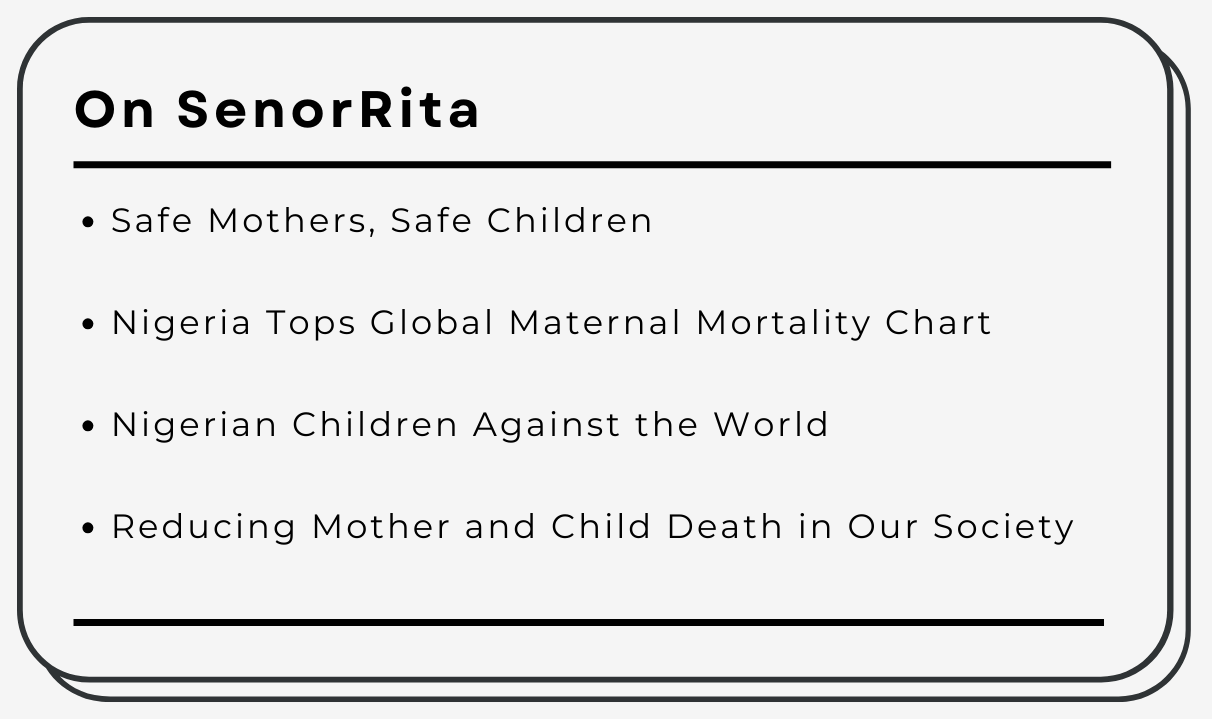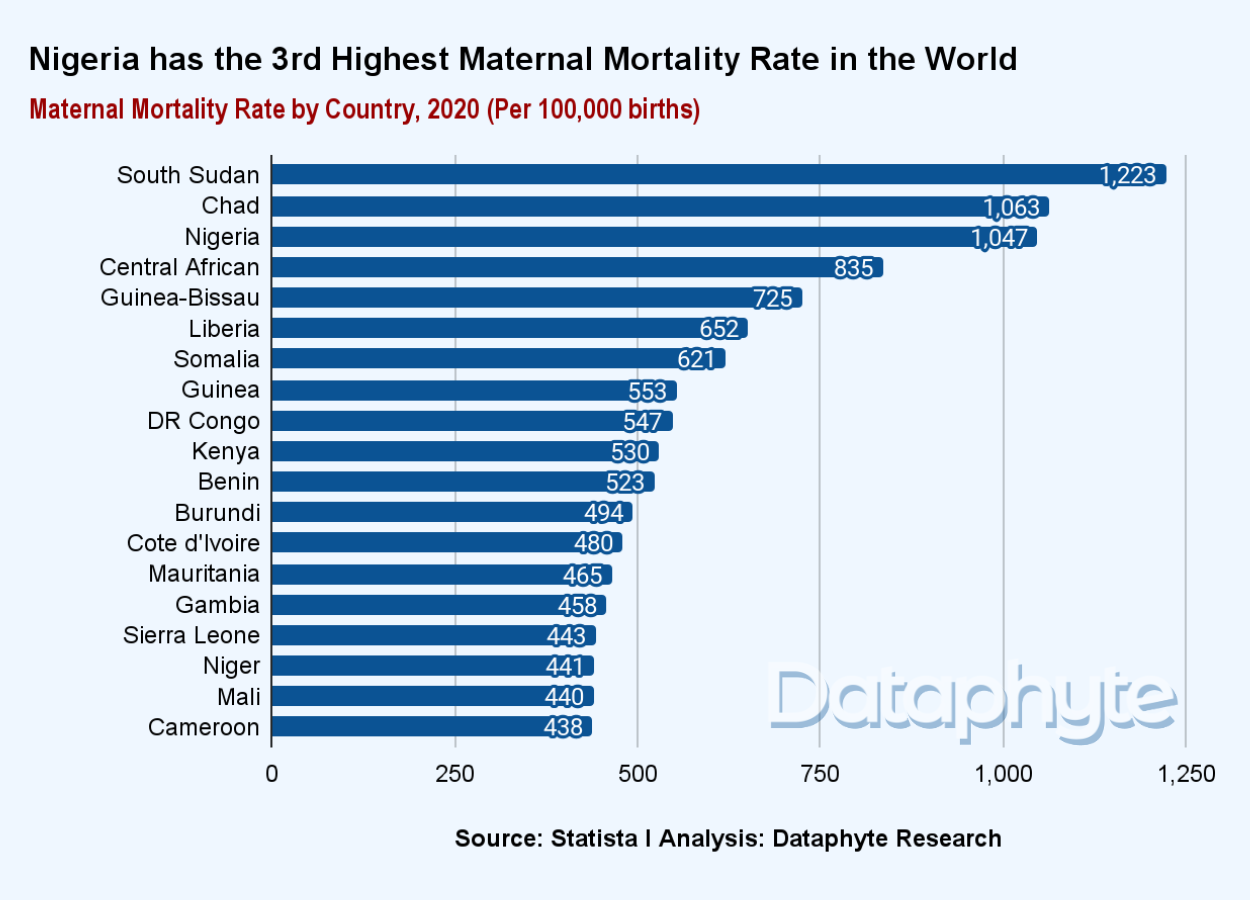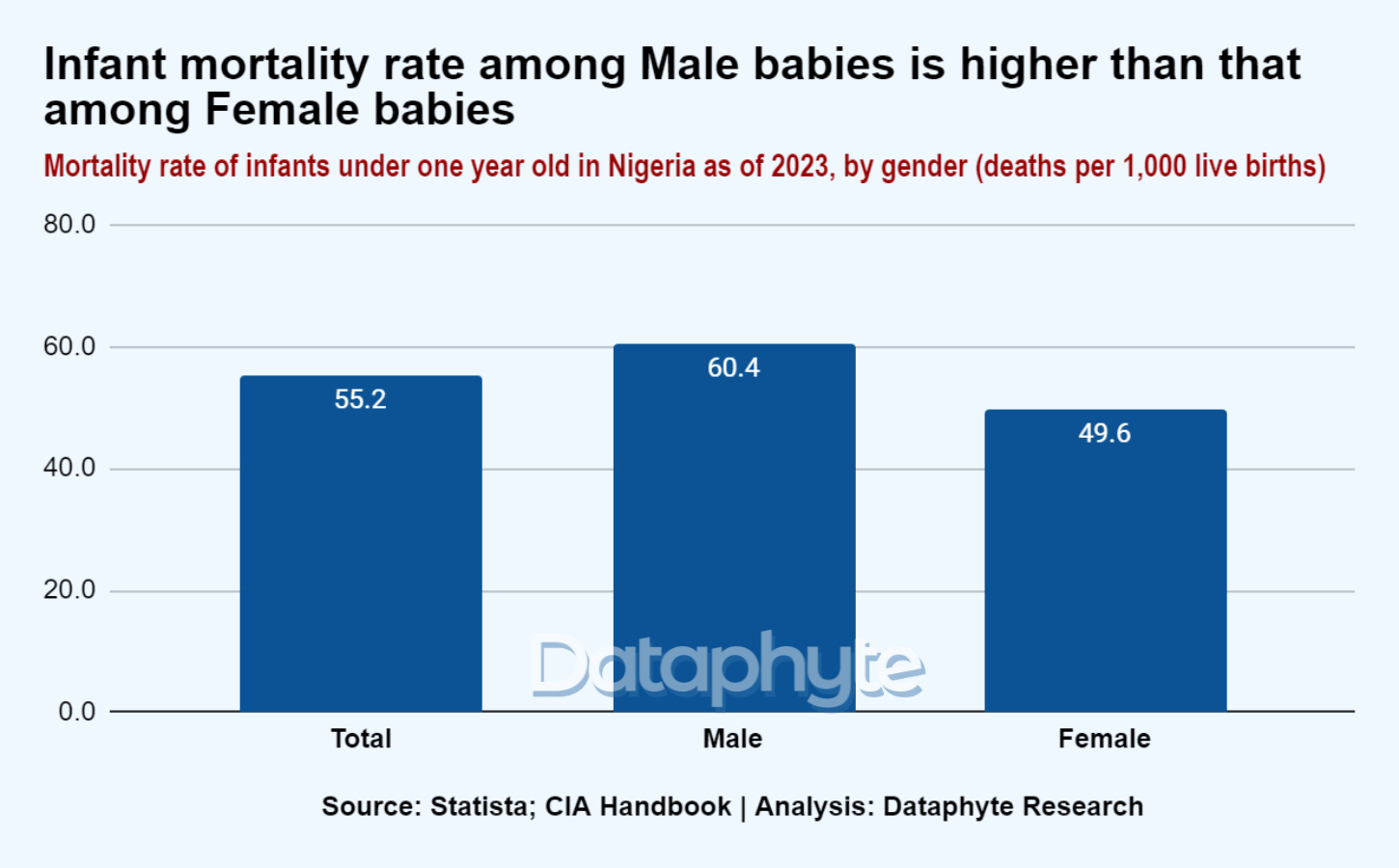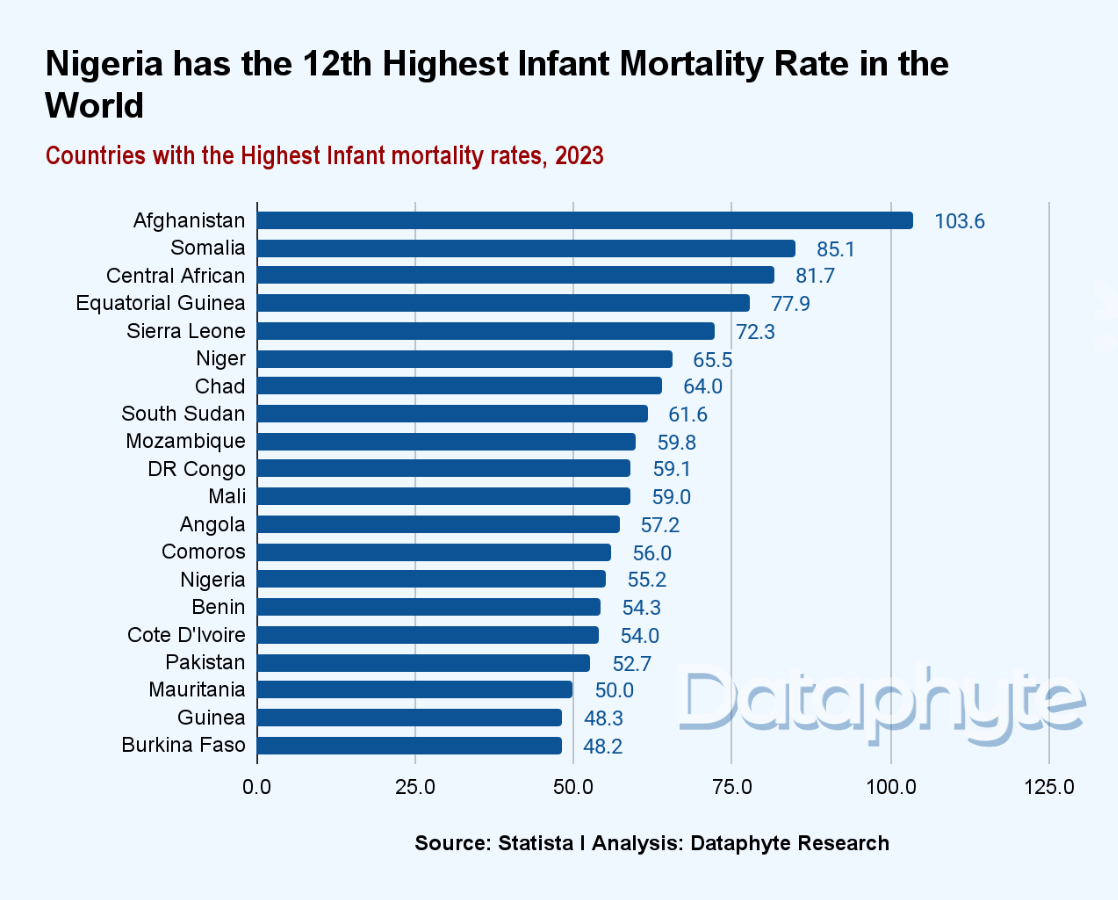The Nigerian government has approved funds to combat maternal and infant mortality rate according to a report.
The purpose of this intervention is to reduce the number of maternal and child mortality cases in the Nigerian health care system, and to provide equal access to healthcare service especially for women and children in accordance with the SDG goals.
According to the World Health Organisation (W.H.O,) maternal mortality refers to the health of women during pregnancy, childbirth, and the postnatal period, while the infant mortality rate is the probability of a child born in a specific year or period dying before reaching the age of one. It is the total number of infant deaths per 1,000 births.
Nigeria Tops Global Maternal Mortality Chart
Trend data shows there is a high incidence of women of child bearing age losing their lives due to pregnancy and postnatal complications in Nigeria.
In fact, Nigeria leads the world in rates of maternal mortality in absolute terms with nearly 82,000 deaths in 2020. In terms of maternal deaths per 100,000 births, Nigeria ranks third only to Chad - its neighbour to the north - and South Sudan.
Nigerian Children Against the World
The situation regarding child mortality is just as sobering.
2023 data from the American Central Intelligence Agency (CIA) shows that there are 55.2 infant deaths per 1,000 live births in the country. Broken down by gender, 60 in 1,000 male infants lose their lives before the age of one, while 50 in 1,000 female babies suffer like fate.
The World Health Organisation (W.H.O) attributes some causes of infant mortality to neonatal disorder, malaria, diarrhoea, acute respiratory infection, pre-term complications, malnutrition among others as factors influencing infant mortality.
Currently, Nigeria has the 12th highest number of infant deaths globally. Most of the countries in the top 20 are from Africa. Other top countries are: Afghanistan with 103.6 ; Somalia with 85.1; Central African Republic with 81.7 and Equatorial Guinea with 77.9.
Reducing Mother and Child Death in Our Society
Health equity is achieved when everyone can attain their full potential for health and well-being.
To avoid maternal deaths, the World Health Organisation advised that it is vital to prevent unintended pregnancies, and all women, including adolescents, need access to contraception, safe abortion services to the full extent of the law, and quality post-abortion care.
The body advised that most maternal deaths are preventable, as the health-care solutions to prevent or manage complications are well known.
“Maternal health and newborn health are closely linked. It is particularly important that all births are attended by skilled health professionals, as timely management and treatment can make the difference between life and death for the women as well as for the children.”
Also, the United Nations study advised that progress is possible, and that more can be achieved by scaling up programmes that deliver results, based on accurate information about how mother and child deaths can be reduced.
It says that, “Widespread adoption of basic health interventions, including early and exclusive breastfeeding, immunisation, vitamin A supplementation and the use of insecticide-treated mosquito nets to prevent malaria, are essential to scaling up progress.”
“We must recognize that providing better health care and higher coverage of vital interventions to those who are most in need requires more than just new hospitals, better immunizations and more skilled health professionals. It requires good roads, reliable water supplies, better nutrition and food security.
“Without these, health workers face difficulties in reaching villages and homes, malnutrition undermines the impact of health interventions, contaminated water sources cause diarrhoeal diseases, and unhygienic practices render children and mothers more vulnerable to disease.”
However, it's one of the SDG goals (SDG: 3) Women and men have different health-care needs, but an equal right to live healthily.
Thanks for reading this edition of SenorRita. It was written by Kafilat Taiwo and edited by Joachim MacEbong.







